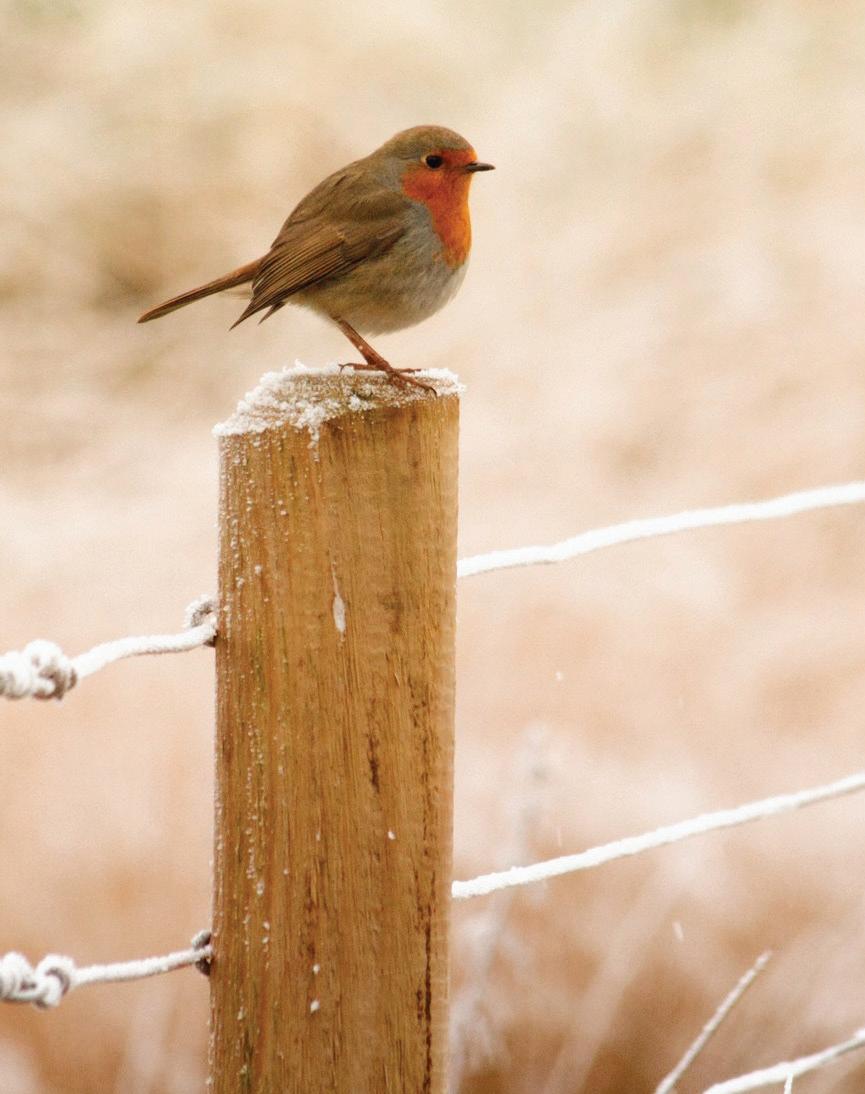
8 minute read
Remembrance Special
purbeckgazette.co.uk How Dorset coped in the Great War
November 11 is VE Day, the anniversary of Europe declaring victory in the First World War. This month, the world unites to remember those who fought and fell in the 1914-1918 conflict – and all others who lost their lives in military conflict. Here, thanks to help from research from the Shaftesbury Remembers The Great War project, we tell stories of how the Dorset community rallied to do its bit to win the war...
BEFORE 1914, Dorset was a busy, largely agricultural community with an economy based primarily around the work of farmers.
Bustling markets were held weekly in towns like Sherbourne, Gillingham and Shaftesbury, where goods such as butter and cheese, as well as animals, would be traded.
In Shaftesbury, cattle would be driven down the High Street to market each week, pigs in netted milk carts, creating a busy town centre packed with dozens of horsedrawn vehicles.
On August 4, 1914, everything would change. The United Kingdom declared war on Germany. The routine and culture of agricultural life in Dorset would change for everyone, forever, over the next four years of conflict.
Those carts bringing cattle to town would be replaced by vehicles transporting troops from around the country – and from around the globe – who came to Dorset for training before heading to the frontline in mainland Europe.
Dorset was also a place of refuge for many, including evacuees from big cities, as well as providing care at Red Cross Hospitals in places like Mere, Gillingham and Bourton. It was also home to a prisoner of war camp at Milldown, Blandford, which eventually housed some 270 internees, many of whom worked at a sawmill on the site. The county of Dorset, like A military vehicle in Dorset the rest of the world, would Picture: Dorset Council never be the same...
Find out more about Dorset during the conflict by visiting the Shaftesbury Remembers The Great War website at shaftesbury-remembers.goldhillmuseum.org.uk

Sail with Santa



Santa has taken a break from his work in the North Pole to join us on our Sail with Santa cruises around Poole Harbour. Enjoy a glass of mulled wine and a mince pie with Christmas music. Each child will receive a soft drink and biscuit and of course a present from Santa! Your ticket includes: • 1 hour and 15 minute cruise •Soft drink and biscuit for kids •Glass of mulled wine and mince pie for adults •Present for each child The scene is set; you are attending a presentation for ‘The Greatest Timeshare in the World’ when one of the people in the room is murdered! The culprit must be apprehended and it is up to you to assist the local police to solve this dastardly crime.
FROM £15PP
Cruise days: 3rd, 4th, 10th, 11th, 17th, 18th, 19th, 20th, 21st, 22nd, 23rd & 24th Dec 2022 Cruise day: Saturday 3rd December 2022
Boards 15 mins before Departs 11am, 1pm, 3pm From Poole Quay Boards 15 mins before Departs 7:30pm From Poole Quay Return 10:30pm
Murder Mystery Cruise
Your ticket includes: • Murder Mystery Experiences •Barbecue Pulled Pork & Chocolate Éclairs •3 hour cruise •Fully licenced Bar
FROM £45PP
BOOK NOW: citycruisespoole.com or +44 (0)20 77 400 400

THE COMMUNITY
THE war effort united Vale communities in support of those who had gone to fight.
Nearly 18,000 charities were founded across the country, many to supply ‘home comforts’, including books, to those fighting overseas.
But needs at home also had to be addressed. With so much of the male workforce now away, women and children stepped up to fill those roles.
Voluntary work was seen as a duty, as was fundraising for the war effort and much besides.
From the start of the war, there is evidence of Vale communities coming together to raise money.
Communities held whist drives, fetes, rifle matches, concerts and more, giving proceeds to charities and funds backing the war effort.
When the war ended in 1918, fundraising efforts did not, with soldiers still serving and many in prisoner-of-war camps.
WOMEN IN THE WAR THOUGH not on the frontlines, women played a hugely important part in the war effort.
The call for volunteers became conscription in January 1916, leaving huge shortfalls in labour – and women answered the call.
A booklet issued by the War Office in September 1916 detailed roles being filled by women, including photographs. They showed women making false teeth, staffing a brewery, gauging shells at a munitions factory in a shipyard and more.
“It aimed to demonstrate women had successfully taken on jobs formerly occupied by men, and thus encourage the release of additional male workers into the armed forces,” says the Dorset History Centre.

Women took on jobs traditionally filled by men Picture: Dorset History Centre
CHILDREN AND SCHOOLS
AS MEN went to war and women took up new jobs in their absence, children too played their part in the war effort.
Schools played a big part in fundraising, for example in 1916 the girls’ high schools of Shaftesbury and Gillingham raised money for the British Red Cross during sales of homemade food, flowers, teas and more. Nearly £54 was raised – around £4,500 in today’s money.
Also in 1916, records show that Bourton’s Red Cross Hospital reported in April it was full up and appealed for donations of ‘anything and everything’ to help. Bourton School was among those who answered the call, providing vegetables.
The school later organised a ‘Pound Day’, when households were encouraged to donate pound weights (450 grams) of goods such as rice and sugar. Pupils were among those going door-to-door to collect donations.
One task the children completed fulfilled a purpose they were actually unaware of. In the summer months, youngsters were often absent from class in order to work, with older children making up the shortfall in farm labour.
Entries in various school logbooks show occasions when pupils were taken out to pick horse chestnuts and blackberries. It turns out, unbeknownst to the children, the horse chestnuts were used to make cordite – a bomb-making ingredient – most likely at the Royal Navy Cordite Factory in Holton Heath.
How to protect your home from care costs Advertisement feature
Nobody likes to think about getting old, but it is certainly worth thinking about if you value your home. That is because your house could very well be sold by the local council to pay for your care fees.
As an example, let’s say you own a home jointly with your partner and you live there until one of you dies. The surviving partner continues to live in the house until they must go into a care home run by the local authority. At that point, the local authority will assess the surviving partner for care fees. If their capital and savings are worth more than £23,250, they will have to fund their own care.
Councils place a charge on the property, which is paid when the house is sold. Alternatively, you may be required to sell the house immediately to raise the cash. Money raised from the sale of the house will fund your care until your savings get down to £23,250. That won’t leave much of an inheritance for your family and loved ones.
There are two solutions to the problem available to you. One is a will trust which protects 50% of the value of your home from care costs. The second is a living trust which shields 100% of the property.
Both are relatively inexpensive to put into place. Every trust is administered by trustees, the trustees can be the partners or surviving partner and children.
The situation won’t get better over time. The UK’s fastest-growing age group comprises those aged over 85. Councils will face even more pressure on budgets, leaving them with little choice but to continue to sell people’s homes.
To protect your home, contact Oakwood Wills on 07832 331594
The main thing to remember with trusts is that because you do not own the assets held in the trust in your own name, it is more difficult for those assets to be taken away from you or from the beneficiaries of the trust.
Chris Tennant, Oakwood Wills




















WILL WRITING AND LEGACY PLANNING
Protect your assets from care costs and inheritance tax
SAVE ON THE COST OF HIGH STREET SOLICITORS
Will writing Lasting power of attorney Asset protection trusts Property protection trusts Inheritance tax solutions and probate FREE consultations Fixed price on ALL products No hidden extras Free home visits and consultations









